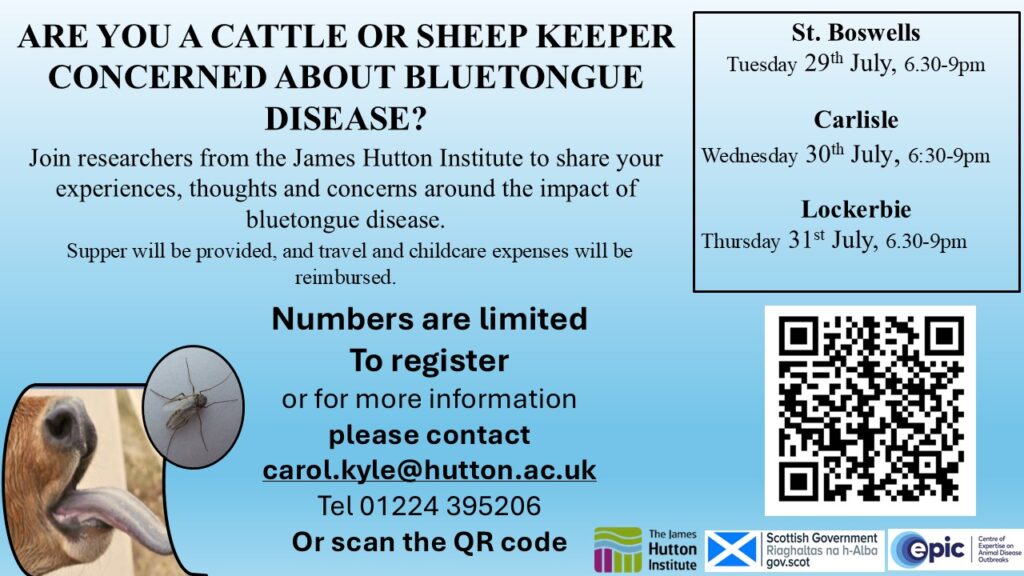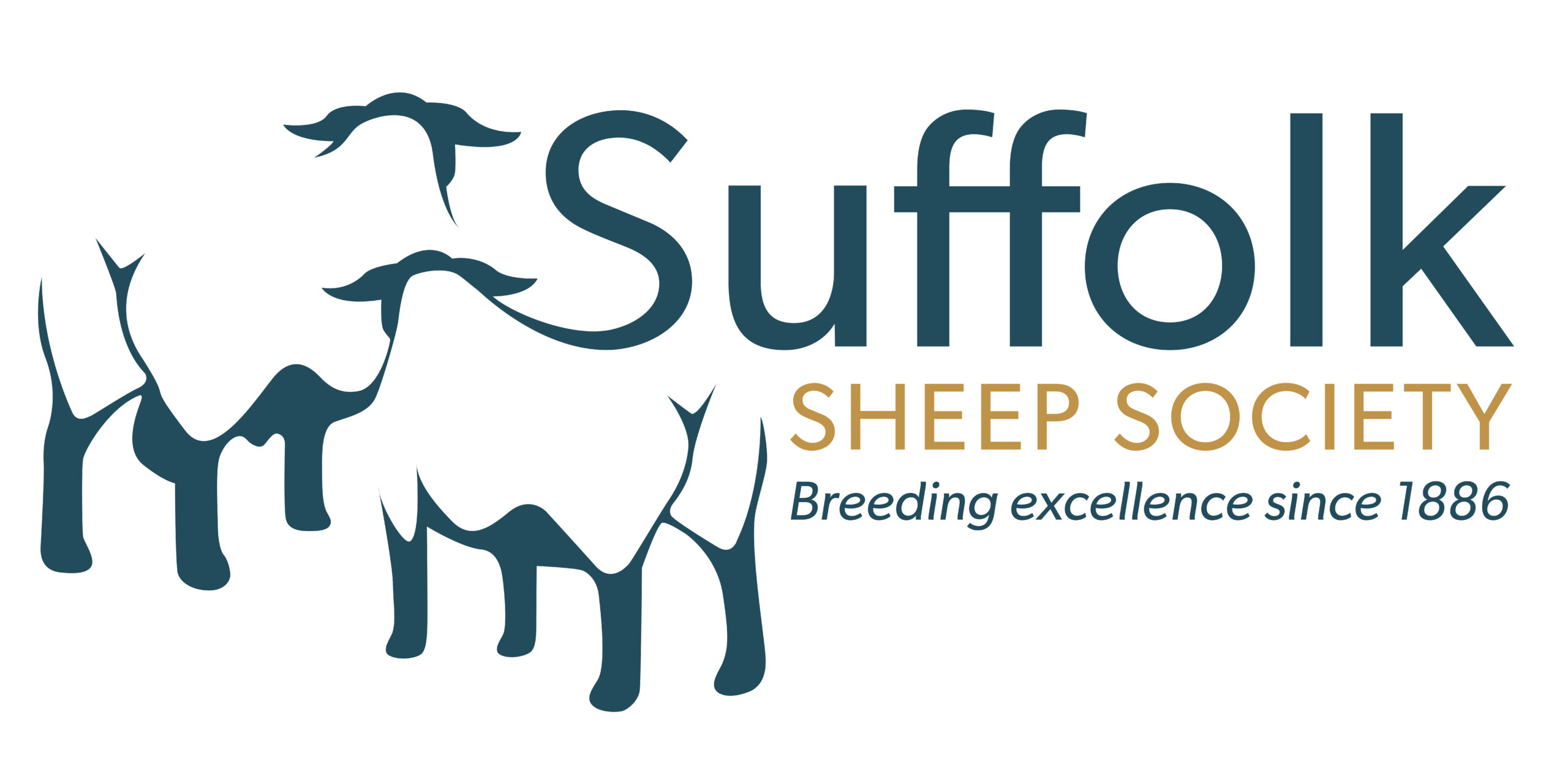Workshop Information

What are the aims of this research project?
Until recently the UK was free from the disease, but incursions in late 2023 and throughout 2024, resulted in several animal movement restriction zones in England. To date (May 2025) there have been no cases in Scotland.
Work carried out by the Hutton team in 2024 highlighted the concern felt by livestock keepers around the impact of dealing with bluetongue, either directly or indirectly.
As bluetongue has not yet been seen in Scotland, there is a possibility that measures to limit the impact may mean that whole of England will become a ‘restriction zone’ from July 1, 2025, requiring the testing of all animals moved out of these areas, with the financial burden for this to be borne by the farmers. This may have considerable impact (financial, emotional, etc.) on the cross-border (England – Scotland) trade of animals and on farms and farmers living and working in the area of the border.
Understanding the attitudes and concerns of keepers to a potential incursion into Scotland, and the effect of a potentially larger restriction zone in England will help inform policy makers and other relevant bodies in decision making when dealing with the disease and enable a better understanding of how livestock keepers see the threat of this and other disease incursions.
Who is funding the project?
This project is funded by EPIC- Scottish Government Centre of Expertise on Animal Disease Outbreaks and RESAS under Theme B: Sustainable Food System and Supply project: Co-designing and implementing best-fit farming practices.
Who is involved?
This research is being undertaken by Carol Kyle, Niamh Mahon, Hannah Budge and Claire Hardy (Social, Economic and Geographical Sciences department at the James Hutton Institute).
What will I be asked to do during the workshop?
Workshops will take place in person. They will be in the evening and last no more than 3 hours. Refreshments will be provided. You will be asked to give your expert opinion on the threat and consequences of a BTV incursion into Scotland, and the issues surrounding disease control.
What types of personal information will be collected?
We will collect your name and contact details (phone number, email address) in order to be able to perform our tasks under this study. This information will not be shared outside of the research institute involved in this work (James Hutton Institute). You will not be identifiable in any research outputs and publications to result from this study.
For further information, please read the privacy notice below. Participation is voluntary and you can withdraw from the study at any point by contacting Carol at Carol.Kyle@hutton.ac.uk
What are the benefits of taking part?
Involvement in this project contributes to a greater understanding of how livestock keepers view the threat of BTV and help inform policy makers in decision making when dealing with a disease incursion.
Personal Risks
We do not envisage any personal risks in participating in this project. However, we would ask that participants practice good biosecurity (e.g. fresh clothing, clean footwear and hands) when attending the workshop.
For further project details, please contact:
Carol Kyle carol.kyle@hutton.ac.uk (01224 395206)
.
Privacy Notice
The James Hutton Institute (“Hutton”, “us” or “we”) will use your personal data for the purposes of the research undertaken in the project ‘Livestock keepers’ response to the threat of Bluetongue virus (BTV). Our legal basis for processing your data is that it is necessary for the performance of a task carried out in the public interest in relation to research funded by the Scottish Government. Hutton is committed to protecting your personal data and adheres to the principles of the UK General Data Protection Regulation (“UK GDPR”) when processing your personal data.
We are the Data Controller over your personal data collected for this interview.
You will not be identifiable to anyone beyond the immediate research team via your participation in the interview.
You will not be identifiable in any outputs or publications resulting from this study
Your contact details will be stored on a secure Hutton server in a password protected file accessible only to the immediate research team.
Any personal data collected will be deleted immediately after it is no longer required for the purpose it was collected.
You have rights in relation to your personal data. Please see our Privacy Notice at www.hutton.ac.uk/terms for further information or contact our Data Protection Officer on dpo@hutton.ac.uk



